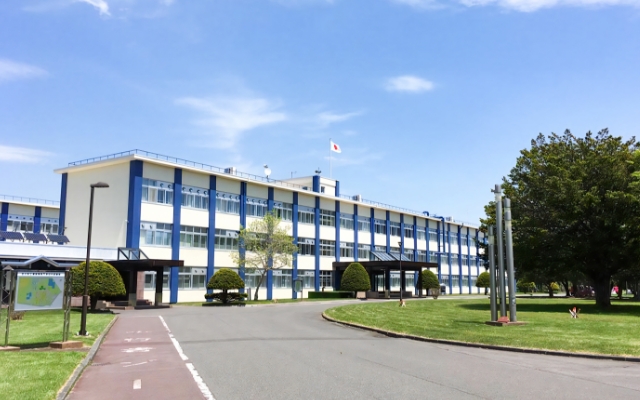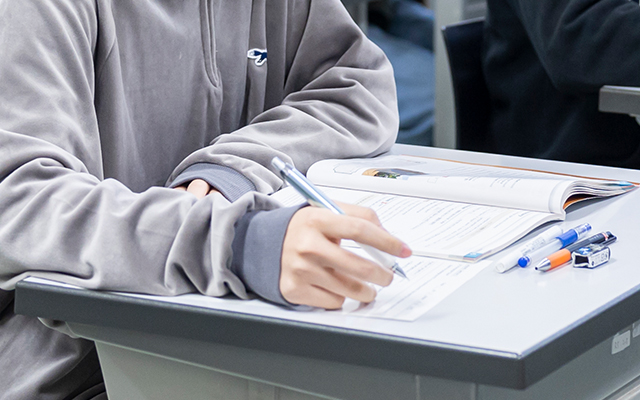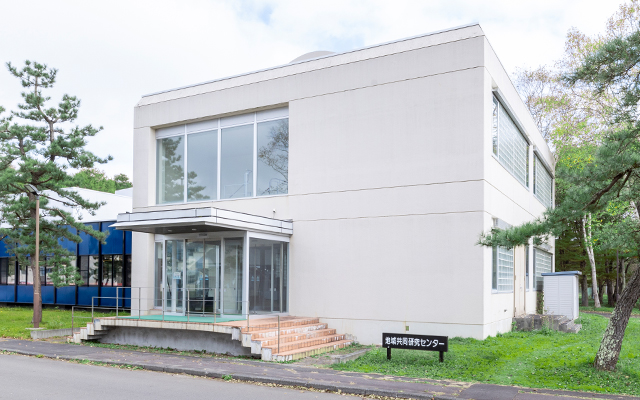Advanced Course Curriculum Policy
In order to develop the skills listed in the Diploma Policy, general subjects designed to help students develop basic academic skills in the natural sciences and humanities, as well as information processing skills, and specialized subjects designed to cultivate students’ practical basic skills in mechanical engineering, civil engineering, applied chemistry and biochemistry, electrical and electronic engineering, and computer science and engineering are provided in the professional divisions.
In addition, each professional division is separated into specialized courses and the Frontier Course at the senior year level. The specialized courses will provide specialized subjects for fostering in-depth knowledge of the engineering field, and the Frontier Courses will provide basic business-related subjects for developing a sense of management in addition to engineering knowledge.
- For the purpose of enabling students to acquire basic scientific knowledge and knowledge of liberal arts which are necessary for practical engineers:
- Natural science subjects such as mathematics, physics and chemistry, and basic information subjects will be provided and developed through a learning method focused on lectures and exercises, so that students can acquire basic scientific knowledge.
- Humanities and social sciences subjects will be provided and developed through a lecture-based learning method, so that students can acquire a broad range of liberal arts.
- In the first year, subjects for introduction to specialties and career education will be provided and developed through a learning method focused on lectures and exercises.
- For the purpose of enabling students to develop the ability to apply and practice fundamental engineering expertise of each division to social implementation via experiments, training, exercises and practices:
- Specialized subjects corresponding to specialized fields of study will be provided and developed through a learning method focused on lectures and exercises, so that students can acquire fundamental engineering expertise of their division.
- Practical training subjects and subjects conducting problem-solving classes which correspond to specialized fields of study will be provided and developed through a learning method focused on experiments and training, so that students can acquire application and practical skills.
- In senior years, graduation or Frontier research will be provided and developed through a comprehensive learning method.
[Note:Specialized subjects by division]
・Mechanical Engineering: Drawing, machine design, mechanics, thermal fluid, machining, materials, information processing, measurement control.
・Civil Engineering: Surveying, materials, structure, ground, hydraulics, environment, planning, construction, regulations, and drafting
・Applied Chemistry and Biochemistry: Organic chemistry, inorganic chemistry, analytical chemistry, physical chemistry, chemical engineering, basic biology, biochemistry, bioengineering, and applied chemistry and biochemistry including functional materials or food chemistry and biochemistry
・Electrical and Electronic Engineering: Electrical circuits, electromagnetic, electronic circuits, electronics, electrical power, measurement, control, and communication engineering
・Computer Science and Engineering: Programming, software, computer engineering, computer systems, system programs, information and communication networks, information mathematics, information theory, and embedded systems
- For the purpose of enabling students to develop the ability to understand the true nature of an issue and solve it from proper ethical perspectives:
- Subjects dealing with content related to ethics and engineering ethics will be provided and developed through a lecturebased learning method.
- In senior years, graduation or Frontier studies will be provided and developed through a comprehensive learning method.
- For the purpose of enabling students to acquire communication skills and the resourcefulness to understand, respect and collaborate with other people:
- Subjects that deepen understanding of behaviors for promoting cooperation and collaboration as a group will be provided and developed through an exercise-based learning method.
- In practical training subjects, a learning method incorporating group work will be developed.
- International competence and the initiative for ongoing learning
- Foreign language (English) subjects will be provided and developed through a learning method focused on lectures and exercises.
- In senior years, graduation or Frontier research will be provided and voluntary studies and research will be developed.
Policy on grading methods
- In lecture-based subjects, attainment goals for the subject will be established, regular performance (such as exercises and reports) and results of regular exams will be comprehensively considered, and the level of achievement against the attainment goals will be evaluated.
- In subjects based on practice, experiments and exercises, regular performance such as assignments, reports and presentations will be comprehensively considered, and the level of achievement against the attainment goals will be evaluated.
- In the graduation research, papers summarizing research results, presentations, and attitudes toward studies will be comprehensively considered, and the level of achievement against the attainment goals will be evaluated.
Grading and evaluation criteria
Grades are based on a 100-point scale, with 60 points or higher being considered successful and the prescribed credits being awarded. Grading will be based on the following criteria.
- Evaluation:Points
- Excellent:90-100 points
- Very good:80-89 points
- Good:70-79 points
- Fair:60-69 points
- Fail:Less than 60 points



